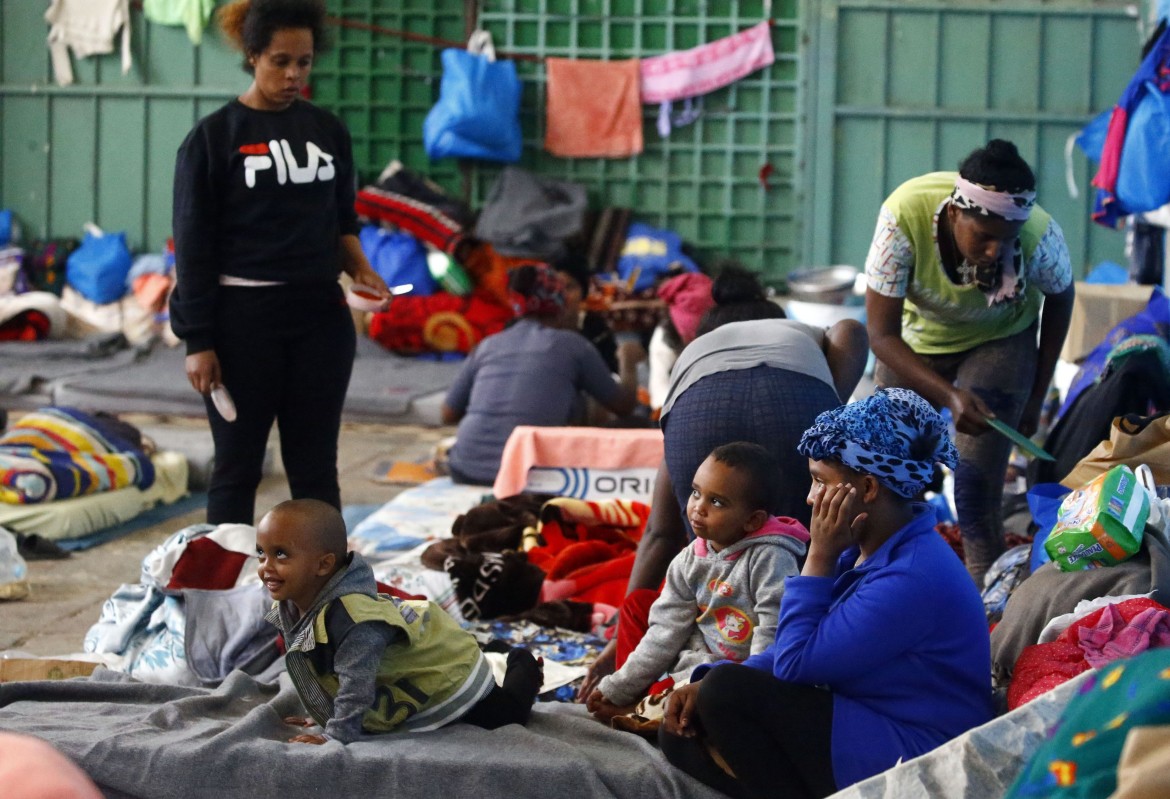Analysis
Haftar bombards Tripoli, pushing total number of dead to 300
As Haftar intensifies his offensive in Tripoli, the United Nations has refrained from denouncing the fighting, a tacit acceptance of it.

Two images stuck out Monday on social media and on the websites aligned with each of the two sides that are currently clashing in Tripoli.
The first image, which cropped up on the social media accounts of the militias supporting Prime Minister Serraj, featured Salah Badi—a military leader who fought Haftar’s troops back in 2014, but who is also listed by the US as a war criminal for the “indiscriminate” massacre of civilians. Badi, with a few white hairs and an imposing physique, was shown in images and videos as he visited the young militia members on the front lines to give guidance and strengthen their resolve.
The second image was one promoted by the other side: it showed General Haftar with a serene smile as he shook hands with Jadallah al Awakli, the spokesman of the NOC, the Libyan state oil company, after making sure that all the energy infrastructure of the country was secure under the protection of his self-proclaimed Libyan National Army.
The photo of al Awakli and Haftar together comes after the president of the NOC, Mustafa Sanallah, had expressed his growing concern for the safety of the Sidra and Ras Lanuf terminals in Tripoli. Last night, a commando of five jeeps attempted to storm the Sharara oil facility, the largest in the country and one in which many foreign companies hold shares, including Spain’s Repsol and the French Total. The LNA’s soldiers, who have had control over the Fezzan oil wells since February, returned fire and forced the attackers to flee, without any casualties.
In Tripoli, the ongoing fighting has taken the form of a positional war, with particular positions conquered and lost again in a matter of hours and firefights focused mainly in Zatarna and Yarmuk, to the south of the city.
On Saturday night, there was intense bombardment—probably delivered by means of drones, as Haftar’s fighter planes are unable to fly at night—against areas in Tajoura and Ein Zarah, where the civilians had already been evacuated for the most part. Rumors are going around about massacres of civilians, and Qatar has spoken up in support of Sarraj’s denunciations that foreign aircraft are flying under Haftar’s command and that unarmed civilians are being targeted, as well as his condemnation of the “silence and complacency” of the UN in the face of the attack on the city. On Sunday, 11 fighters were confirmed dead and 30 wounded as a result of the night raids, but no figures have been reported as regards civilian casualties. According to the UNHCR, a total of 22 people died during the four weeks of fighting, including one child, and three minors were wounded. The total number of those killed during these four weeks reached 300 on Monday.
In an interview on the radio station France Inter, UN special envoy Ghassam Salamé stressed that Haftar “is no Abraham Lincoln, he is no big democrat, but he has qualities and wants to unify the country.” He also added that Haftar does not want the power to remain in the hands of armed groups, which was a positive. However, Salamé also had plenty of criticism for the general: “[h]ow is he going to do it? Seeing him act, we can be worried about his methods because where he is governing, he doesn’t govern softly, but with an iron fist.”
As regards the ultimate role of the general, that question will only become relevant after the end of the fighting. For now, Salamé showed a willingness to refrain from outright condemning the offensive—which has the practical effect of giving it the all clear.
For his part, Turkish President Recep Tayyip Erdogan is reiterating his full support for Sarraj, his government set up by the Skhirat Agreement in 2015, and the militias currently running Tripoli. On Monday, Erdogan called Sarraj to reassure him that he would “use all his country’s capabilities to prevent the conspiracy against the Libyan people.”
On Sunday, from Ankara, Erdogan warned the international community about the risk that Libya would “turn into a new Syria.” Like everyone else, the head of the neo-Ottoman Turkish state is keen on repeating the cliché that “there is no military solution to the Libyan crisis”—but he certainly didn’t have such a neutral stance in the case of Syria.
Meanwhile, the spokesman for Haftar’s forces, Ahmed Mismari, is now accusing Erdogan of having sent in Turkish intelligence officers to coordinate the militias in Tripoli, and of having encouraged the arrival of jihadists from Syria through the Muslim Brotherhood to reinforce their ranks.
Originally published at https://ilmanifesto.it/haftar-bombarda-tripoli-300-i-morti-dallinizio-delloffensiva/ on 2019-04-30
